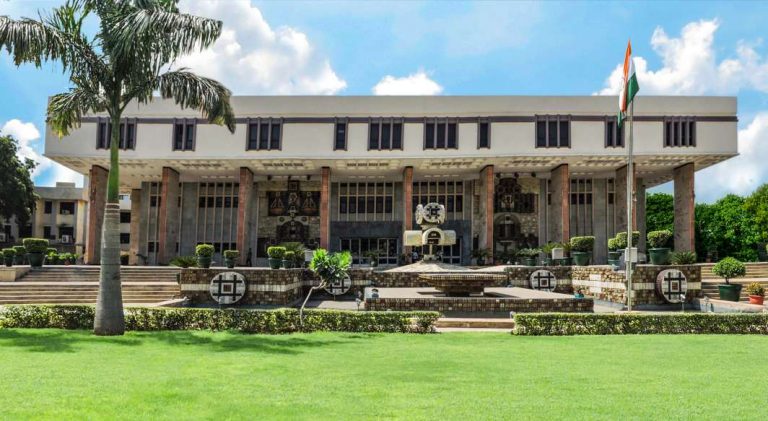
~By Sujit Bhar
If the opinion of influential people in society needs to be taken into account in deciding whether marital rape is a reality and should be a punishable offence, the Delhi High Court—which has agreed to hear a petition filed by an NGO opposing multiple petitions regarding marital rape—will probably be at a loss for words.
The court will have to take into account absurd observations from former constitutional heads, such as an ex-governor, who believes there is no such thing as marital rape. This was the opinion of former Governor and advocate Swaraj Kaushal, who, incidentally, is also the husband of India’s foreign minister Sushma Swaraj.
Kaushal had tweeted: “There is nothing like marital rape. Our homes should not become police stations.”
When queried by another whether Kaushal was for marital rape, he had tweeted back: “There will be more husbands in the jail, than in the house.”
The court, which is into its first day of hearings, will have to really understand what the central government means when it submitted before the court on Tuesday (August 29) that criminalising marital rape (actually, even accepting the term marital rape) would threaten the very institution of marriage.
The court’s bench of Acting Chief Justice Gita Mittal and Justice C Hari Shankar is hearing the arguments.
The centre’s submission feared misuse of Section 498A and also feared that it would become an easy tool for harassing husbands. That statement is not as absurd as it sounds, because such instances in law courts are not rare. However, generalising this as the only reason for not respecting a woman’s wishes vis-a-vis sex, even if it were with her husband, is another matter altogether.
In fact, the Supreme Court bench of Justices AK Goel and UU Lalit had recently observed that this Section 498A of the Indian Penal Code, otherwise termed as the anti-dowry law, is being widely misused by women to get back at their in-laws for frivolous reasons. The bench felt that this is a position far removed from the noble objective of the law, which was to protect helpless women from dowry torture at the hands of their in-laws.
(Read India Legal story here)
In that backdrop, the apex court had issued a new set of directives which said that there has to be Family Welfare Committees (FWC) in each district of each state that will have the job of verifying each complaint. Also, no arrests should be made without verification. There has been talk as to how practicable this solution is, and if it can be really implemented (especially the FWCs).
That was as far as the anti-dowry element of the law goes. However, in marital rape, the centre feels that the husband may be similarly harassed if a wife or any of her relatives file a complaint.
The government has attempted to segregate any generalisation. It has said: “If all sexual acts by a man with his own wife will qualify to be marital rape, then the judgment as to whether it is a marital rape or not will singularly rest with the wife. The question is what evidences the Courts will rely upon in such circumstances, as there can be no lasting evidence in case of sexual acts between a man and his own wife.”
It seems that by beating around with technicalities, the Centre and the NGO in question are all attempting to bypass the overarching question of whether a woman’s body and a woman’s privacy is her own. They do not belong to her husband, even after marriage. The same Supreme Court’s recent verdict on privacy is a sparkling example of how an individual should not only be allowed to choose how he or she wishes to use his or her body, but even with whom and when. It would be unfair to treat this complex issue through the lens of one law and one law only and there has to be learned arguments on both sides. There is always a middle path to every issue.
Let us be clear on one thing. There is no “tradition” in India which says that a woman has to be the obedient servant in a marriage, relenting to the wishes, however repugnant, of the husband. Probably vice-versa as well. India, from the Vedic ages has been an open society, amenable to debate and change. Change and adaptability is ingrained in Indian society.
The High Court will need a lot of patience and more evidence to go any further in this contentious issue. Because marital rape happens, every day, even in the poorest sub-strata in Indian society. This has to be stopped.

